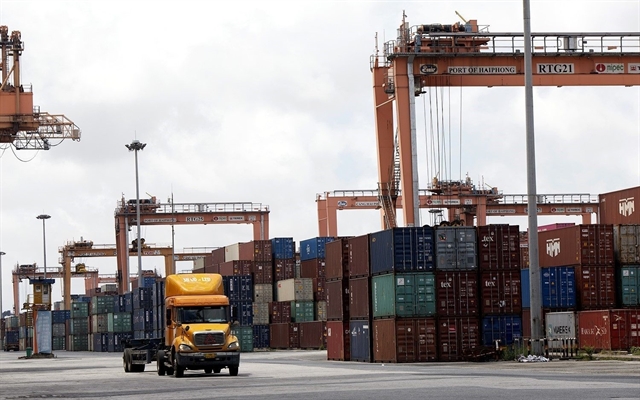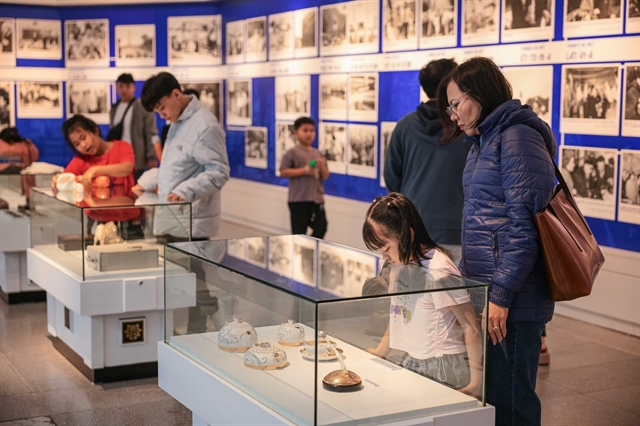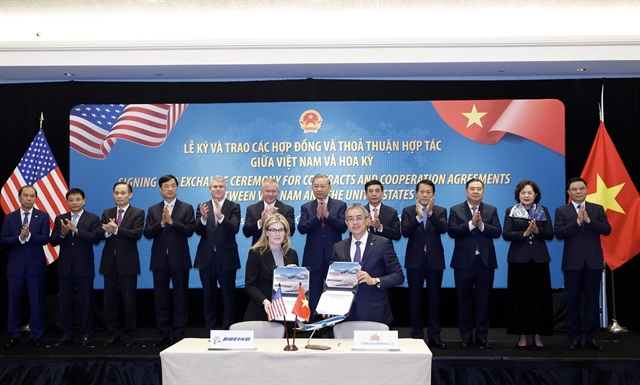 Society
Society


|
| Workshop of Scaling CGIAR Innovations through Strategic Partnerships held by Ministry of Agriculture Environment and CGIAR in Hà Nội on Wednesday. VNS Photo Tố Như |
HÀ NỘI – Agricultural transformation is a long-term endeavour and success will come from consistent effort, collaboration, and ongoing innovation, said Nguyễn Đỗ Anh Tuấn, director general of the International Co-operation Department.
The strategic partnership among Cambodia, the Philippines, Việt Nam, and Consultative Group for International Agricultural Research (CGIAR) ensures that innovative solutions effectively address national priorities for food system development, he said in workshop of Scaling CGIAR Innovations with Strategic Partnerships held by Ministry of Agriculture and Environment, and CGIAR in Hà Nội.
The year 2025 marks a pivotal phase in the pursuit of sustainable agriculture. It is also an opportunity to assess the achievements of the Asian Mega-Deltas (AMD) Initiative on Food Systems Protection and prepare for the next phase of CGIAR’s scientific programmes.
Between 2021 and 2024, the AMD Initiative successfully developed 85 innovations, organised over two hundred capacity-building activities, and reached more than eight million farmers. It has also informed investment decisions totalling US$1billion for climate resilience and low-emission rice farming in delta regions of Bangladesh, Cambodia, India, Myanmar, and Việt Nam.
Co-operation efforts also mobilised public sector investment to co-develop and expand the Climate Newsletter in Việt Nam, while adapting Digital Climate Advisory Services (DCAS) to suit the contexts and needs of users in four project countries.
In the same three-year period, cost-effectiveness studies supported by AMD laid the groundwork for national guidelines focused on nutrition.
Training was delivered to 11,000 farmers and 52,000 consumers, and key policies such as Cambodia’s Food and Nutrition Security Strategy and Việt Nam’s “Zero Hunger” National Action Programme were supported.
Data and tools developed under AMD have played a crucial role in mobilising significant finance for climate adaptation and low-emission rice initiatives, such as the Rice Monitoring and Reporting System (RiceMore) and the Climate-Smart Mapping and Adaptation Planning tool (CS-MAP), both prioritised under Việt Nam’s Green Growth Strategy. In Thailand, the low-emission rice production model developed by AMD has been incorporated into the country’s Nationally Determined Contributions (NDC) as a mitigation solution.
Dr. Bjoern Ole Sander, head of AMD said that we will strengthen and expand sustainable partnerships, scale up validated innovations and approaches, and promote the integration of strategic themes, emphasising gender equality and social inclusion (GESI) as well as long-term sustainability.
Dr. Katherine Nelson, scientist of the International Rice Research Institute (IRRI) said that this workshop, facilitated by strategic partnerships, provided an important opportunity for Cambodia, the Philippines, Việt Nam and CGIAR to ensure our innovative solutions directly address national priorities and food system strategies.
New Zealand Ambassador to Việt Nam Caroline Beresford reiterated New Zealand’s strong commitment to supporting agricultural innovation initiatives and enabling collective action to benefit smallholders and vulnerable communities across Asia.
CGIAR’s scientific programmes and initiatives are expected to focus on key areas such as breeding for the future, genebanks, policy innovation, improved diets and nutrition, multifunctional landscapes, food and nutrition security, sustainable livestock and aquaculture, sustainable farming, climate action, impact scaling, and cross-cutting themes such as digital transformation, capacity sharing, gender equality, and social inclusion. VNS




